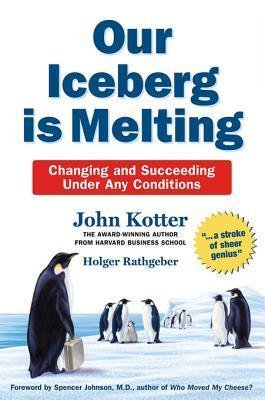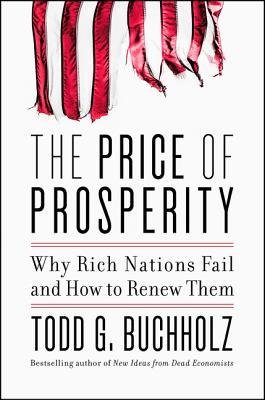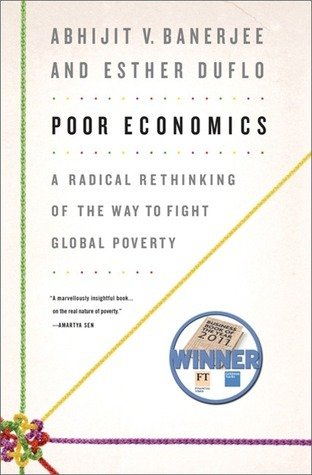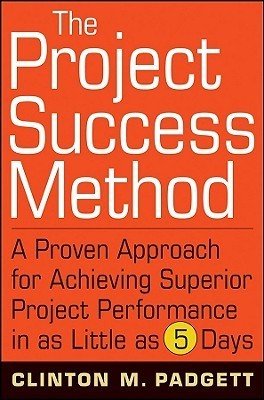
Reviews

Case in Point
Cosentino demystifies the consulting case interview. He takes you inside a typical interview by exploring the various types of case questions and he shares with you a system that will help you answer today's most sophisticated case questions.

Our Iceberg is Melting: Changing and Succeeding Under Any Conditions
In Our Iceberg is Melting a simple fable about penguins illustrates how to conquer change, with profound lessons for working and living in an ever-changing world.
This charming story about a penguin colony in Antarctica illustrates key truths about how we deal with the issue of handle the challenge well and you can prosper greatly; handle it poorly and you put yourself at risk. The penguins are living happily on their iceberg as they have done for many years. Then one curious penguin discovers a potentially devastating problem threatening their home – and pretty much no one listens to him.
The characters in this fable are like people we recognize, even ourselves. Their story is one of resistance to change and heroic action, confusion and insight, seemingly intractable obstacles and the most clever tactics for dealing with those obstacles. It is a story that is occuring in different forms around us today – but the penguins handle change a great deal better than most of us.

Why Nations Fail: The Origins of Power Prosperity and Poverty
Is it culture, the weather, geography? Perhaps ignorance of what the right policies are?
Simply, no. None of these factors is either definitive or destiny. Otherwise, how to explain why Botswana has become one of the fastest growing countries in the world, while other African nations, such as Zimbabwe, the Congo, and Sierra Leone, are mired in poverty and violence?
Daron Acemoglu and James Robinson conclusively show that it is man-made political and economic institutions that underlie economic success (or lack of it). Korea, to take just one of their fascinating examples, is a remarkably homogeneous nation, yet the people of North Korea are among the poorest on earth while their brothers and sisters in South Korea are among the richest. The south forged a society that created incentives, rewarded innovation, and allowed everyone to participate in economic opportunities. The economic success thus spurred was sustained because the government became accountable and responsive to citizens and the great mass of people. Sadly, the people of the north have endured decades of famine, political repression, and very different economic institutions—with no end in sight. The differences between the Koreas is due to the politics that created these completely different institutional trajectories.

Freakonomics: A Rogue Economist Explores the Hidden Side of Everything
Which is more dangerous, a gun or a swimming pool? What do schoolteachers and sumo wrestlers have in common? Why do drug dealers still live with their moms? How much do parents really matter? What kind of impact did Roe v. Wade have on violent crime? Freakonomics will literally redefine the way we view the modern world.
These may not sound like typical questions for an economist to ask. But Steven D. Levitt is not a typical economist. He is a much heralded scholar who studies the stuff and riddles of everyday life -- from cheating and crime to sports and child rearing -- and whose conclusions regularly turn the conventional wisdom on its head. He usually begins with a mountain of data and a simple, unasked question. Some of these questions concern life-and-death issues; others have an admittedly freakish quality. Thus the new field of study contained in this book: freakonomics.

Essentialism: The Disciplined Pursuit of Less
Have you ever found yourself stretched too thin?
Do you simultaneously feel overworked and underutilized?
Are you often busy but not productive?
Do you feel like your time is constantly being hijacked by other people’s agendas?
If you answered yes to any of these, the way out is the Way of the Essentialist. The Way of the Essentialist isn’t about getting more done in less time. It’s about getting only the right things done. It is not a time management strategy, or a productivity technique. It is a systematic discipline for discerning what is absolutely essential, then eliminating everything that is not, so we can make the highest possible contribution towards the things that really matter.

Boomerang: Travels in the New Third World
The tsunami of cheap credit that rolled across the planet between 2002 and 2008 was more than a simple financial phenomenon: it was temptation, offering entire societies the chance to reveal aspects of their characters they could not normally afford to indulge.
Icelanders wanted to stop fishing and become investment bankers. The Greeks wanted to turn their country into a pinata stuffed with cash and allow as many citizens as possible to take a whack at it. The Germans wanted to be even more German; the Irish wanted to stop being Irish.

The Price of Prosperity
America and other developed countries, including Germany, Japan, France, and Great Britain are in desperate straits. The loss of community, a contracting jobs market, immigration fears, rising globalization, and poisonous partisanship—the adverse price of unprecedented prosperity—are pushing these nations to the brink.
Acclaimed author, economist, hedge fund manager, and presidential advisor Todd G. Buchholz argues that without a sense of common purpose and shared identity, nations can collapse. The signs are everywhere: Reckless financial markets encourage people to gamble with other people’s money. A coddling educational culture removes the stigma of underachievement. Community traditions such as American Legion cookouts and patriotic parades are derided as corny or jingoistic. Newcomers are watched with suspicion and contempt.

Poor Economics: A Radical Rethinking of the Way to Fight Global Poverty
Why do the poor borrow to save? Why do they miss out on free life-saving immunizations, but pay for unnecessary drugs? In Poor Economics, Abhijit V. Banerjee and Esther Duflo, two practical visionaries working toward ending world poverty, answer these questions from the ground. In a book the Wall Street Journal called “marvelous, rewarding,” the authors tell how the stress of living on less than 99 cents per day encourages the poor to make questionable decisions that feed—not fight—poverty. The result is a radical rethinking of the economics of poverty that offers a ringside view of the lives of the world’s poorest, and shows that creating a world without poverty begins with understanding the daily decisions facing the poor.

The Everything Store: Jeff Bezos and the Age of Amazon
Amazon.com started off delivering books through the mail. But its visionary founder, Jeff Bezos, wasn't content with being a bookseller. He wanted Amazon to become the everything store, offering limitless selection and seductive convenience at disruptively low prices. To do so, he developed a corporate culture of relentless ambition and secrecy that's never been cracked. Until now. Brad Stone enjoyed unprecedented access to current and former Amazon employees and Bezos family members, giving readers the first in-depth, fly-on-the-wall account of life at Amazon. Compared to tech's other elite innovators--Jobs, Gates, Zuckerberg--Bezos is a private man. But he stands out for his restless pursuit of new markets, leading Amazon into risky new ventures like the Kindle and cloud computing, and transforming retail in the same way Henry Ford revolutionized manufacturing.
The Everything Store will be the revealing, definitive biography of the company that placed one of the first and largest bets on the Internet and forever changed the way we shop and read.

The Project Success Method
The Project Success Method is a unique, proven and fire-tested methodology which allows companies, groups or managers to learn and develop consistency in the way they plan, schedule, manage, control and close out projects on time, per spec and within budget-- in as little as 5 days. Over the last 25 years, the methodology has been used around the world by manufacturers of heavy equipment, electronics, aircraft components, paper products, beverages, electric and gas utilities, hotel and restaurant chains, and companies in the financial services, telecommunications, real estate, entertainment, and transportation industries. The Project Success Method has proven effective in a vast array of project applications, including new product development and introduction, IT systems development and implementation, process improvement initiatives, marketing programs, engineering and architectural design, construction and renovation, facility relocations and startups, mergers and acquisitions, major industrial maintenance and special events.


